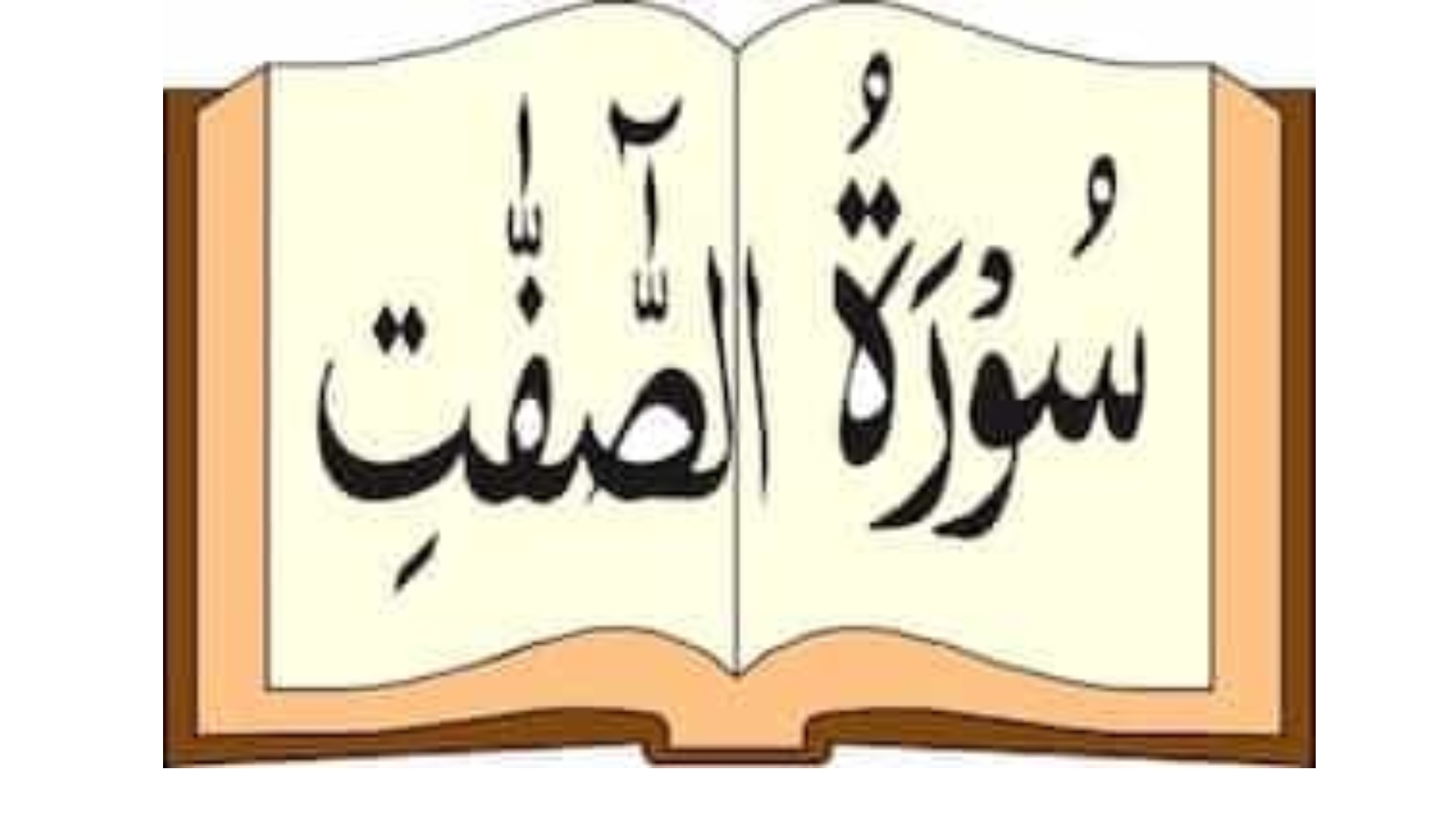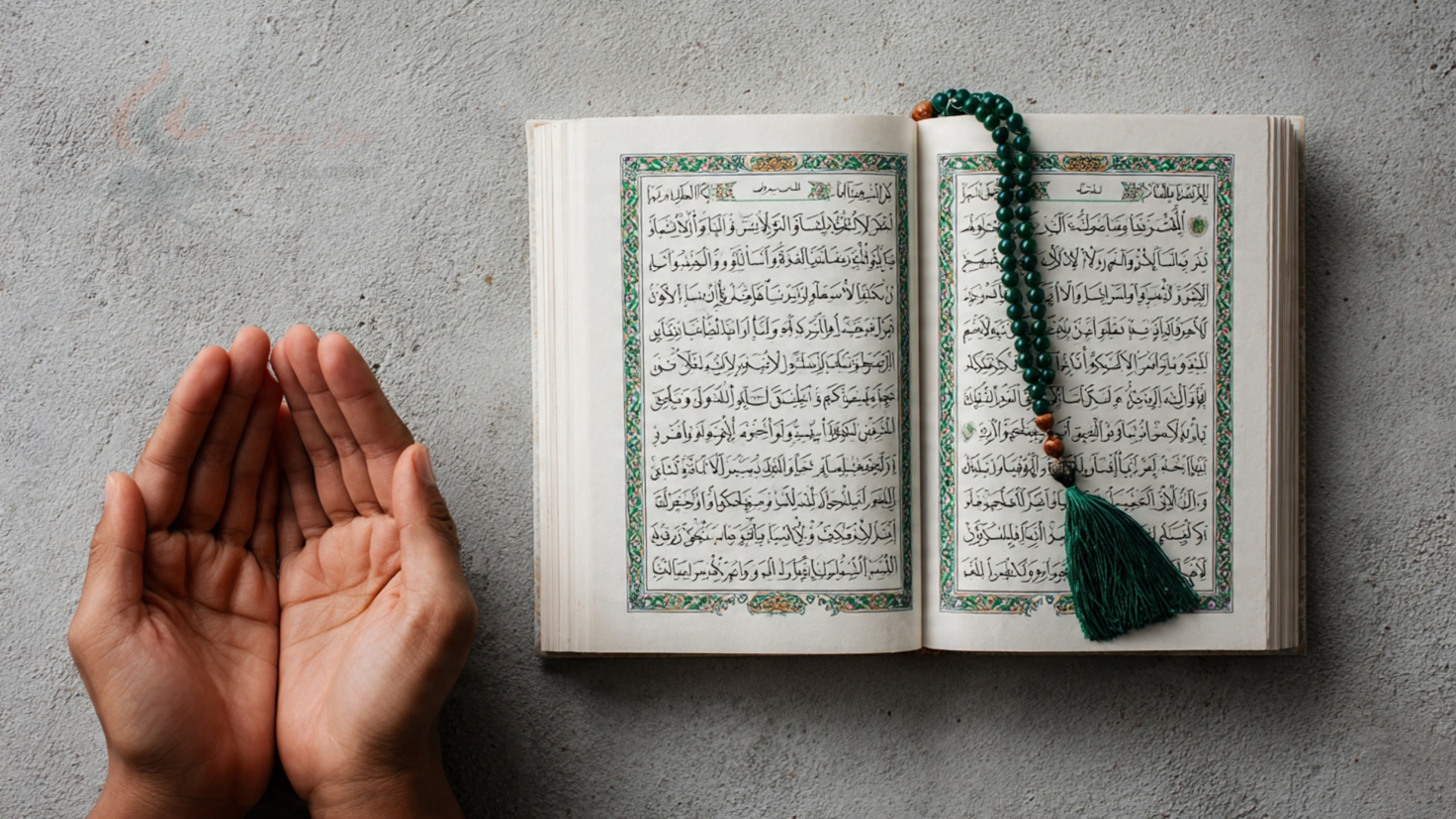Surah As-Saffat, the 37th chapter of the Qur’an, is an eloquent reminder of God’s omnipotence, the importance of monotheism, and the trials faced by His messengers. Revealed during the middle Makkan period, this Surah stands as a testament to the resilience of faith and the narratives that shaped the essence of Islam. It vividly portrays the outcomes of belief and disbelief, offering timeless lessons. Below, we take an in-depth look at Surah As-Saffat, its themes, historical context, and its enduring relevance.
Overview of Surah As-Saffat
Surah As-Saffat comprises 182 verses, divided into five sections or rukus. It is a Meccan Surah, characterized by its powerful language and rhythmic flow aimed at awakening the hearts of its listeners. The term “As-Saffat” translates to “those who line up” or “those arranged in ranks,” referring to the ranks of angels worshiping and glorifying God continuously.
The Surah’s themes can be divided into three main sections:
- The Oneness of God and His ultimate authority.
- Historical narratives of earlier prophets highlight their trials, devotion, and trust in God.
- A depiction of the Day of Judgment, contrasting the eternal fates of believers and disbelievers.
By weaving these themes together, the Surah reinforces essential Islamic beliefs while also providing moral and spiritual lessons.

Surah As-Saffat (1 to 90)Transliteration, English & Urdu Translation
بِسۡمِ ٱللَّهِ ٱلرَّحۡمَٰنِ ٱلرَّحِيمِ
Bismillah hir rahman nir raheem
In the name of Allah, the Entirely Merciful, the Especially Merciful.
وَٱلصَّـٰٓفَّـٰتِ صَفّٗا-1
Wassaaaffaati saffaa
By those [angels] lined up in rows
فَٱلزَّـٰجِرَٰتِ زَجۡرٗا-2
Fazzaajiraati zajraa
And those who drive [the clouds]
فَٱلتَّـٰلِيَٰتِ ذِكۡرًا-3
Fattaaliyaati Zikra
And those who recite the message,
إِنَّ إِلَٰهَكُمۡ لَوَٰحِدٞ-4
Inna Illaahakum la Waahid
Indeed, your God is One,
رَّبُّ ٱلسَّمَٰوَٰتِ وَٱلۡأَرۡضِ وَمَا بَيۡنَهُمَا وَرَبُّ ٱلۡمَشَٰرِقِ-5
Rabbus samaawaati wal ardi wa maa bainahumaa wa Rabbul mashaariq
Lord of the heavens and the earth, and that between them and Lord of the sunrises.
إِنَّا زَيَّنَّا ٱلسَّمَآءَ ٱلدُّنۡيَا بِزِينَةٍ ٱلۡكَوَاكِبِ-6
Innaa zaiyannas samaaa ‘ad dunyaa bizeenatinil kawaakib
Indeed, we have adorned the nearest heaven with an adornment of stars
وَحِفۡظٗا مِّن كُلِّ شَيۡطَٰنٖ مَّارِدٖ-7
Wa hifzam min kulli Shaitaanim maarid
And as protection against every rebellious devil
لَّا يَسَّمَّعُونَ إِلَى ٱلۡمَلَإِ ٱلۡأَعۡلَىٰ وَيُقۡذَفُونَ مِن كُلِّ جَانِبٖ-8
Laa yassamma ‘oona ilal mala ‘il a’alaa wa yuqzafoona min kulli jaanib
[So] they may not listen to the exalted assembly [of angels] and are pelted from every side,
دُحُورٗاۖ وَلَهُمۡ عَذَابٞ وَاصِبٌ-9
Duhooranw wa lahum ‘azaabunw waasib
Repelled, and for them is a constant punishment,
إِلَّا مَنۡ خَطِفَ ٱلۡخَطۡفَةَ فَأَتۡبَعَهُۥ شِهَابٞ ثَاقِبٞ-10
Illaa man khatifal khatfata fa atba’ahoo shihaabun saaqib
Except one who snatches [some words] by theft, but they are pursued by a burning flame, piercing [in brightness].
فَٱسۡتَفۡتِهِمۡ أَهُمۡ أَشَدُّ خَلۡقًا أَم مَّنۡ خَلَقۡنَآۚ إِنَّا خَلَقۡنَٰهُم مِّن طِينٖ لَّازِبِۭ-11
Fastaftihim ahum ashaddu khalqan am man khalaqnaa; innaa khalaqnaahum min teenil laazib
Then inquire of them, [O Muhammad], “Are they a stronger [or more difficult] creation or those [others] We have created?” Indeed, we created men from sticky clay.
بَلۡ عَجِبۡتَ وَيَسۡخَرُونَ-12
Bal’ajibta wa yaskharoon
But you wonder, while they mock,
وَإِذَا ذُكِّرُواْ لَا يَذۡكُرُونَ-13
And when they are reminded, they remember not.
Wa izaa zukkiroo laa yazkuroon
وَإِذَا رَأَوۡاْ ءَايَةٗ يَسۡتَسۡخِرُونَ-14
Wa izaa ra aw Aayatany yastaskhiroon
And when they see a sign, they ridicule
وَقَالُوٓاْ إِنۡ هَٰذَآ إِلَّا سِحۡرٞ مُّبِينٌ-15
Wa qaalooo in haazaa illaa sihrum mubeen
And say, “This is not but obvious magic.
أَءِذَا مِتۡنَا وَكُنَّا تُرَابٗا وَعِظَٰمًا أَءِنَّا لَمَبۡعُوثُونَ-16
‘A-izaa mitnaa wa kunnaa turaabanw wa ‘izaaman ‘a innaa lamab’oosoon
When we have died and become dust and bones, are we indeed to be resurrected?
أَوَءَابَآؤُنَا ٱلۡأَوَّلُونَ-17
Awa aabaa’unal awwaloon
And our forefathers [as well]?”
قُلۡ نَعَمۡ وَأَنتُمۡ دَٰخِرُونَ-18
Qul na’am wa antum daakhiroon
Say, “Yes, and you will be [rendered] contemptible.”
فَإِنَّمَا هِيَ زَجۡرَةٞ وَٰحِدَةٞ فَإِذَا هُمۡ يَنظُرُونَ-19
Fa innamaa hiya zajra tunw waahidatun fa izaa hum yanzuroon
It will be only one shout, and at once they will be observing.
وَقَالُواْ يَٰوَيۡلَنَا هَٰذَا يَوۡمُ ٱلدِّينِ-20
Wa qaaloo yaa wailanaa haazaa Yawmud-Deen
They will say, “O woe to us! This is the Day of Recompense.”
هَٰذَا يَوۡمُ ٱلۡفَصۡلِ ٱلَّذِي كُنتُم بِهِۦ تُكَذِّبُونَ-21
Haazaa Yawmul Faslil lazee kuntum bihee tukaziboon (section 1)
Uhshurul lazeena zalamoo wa azwaajahum wa maa kaanoo ya’budoon
[The angels will be ordered], “Gather those who committed wrong, their kind, and what they used to worship
مِن دُونِ ٱللَّهِ فَٱهۡدُوهُمۡ إِلَىٰ صِرَٰطِ ٱلۡجَحِيمِ-22
Min doonil laahi fahdoohum ilaa siraatil Jaheem
Other than Allah, and guide them to the path of Hellfire
وَقِفُوهُمۡۖ إِنَّهُم مَّسۡـُٔولُونَ-23
Wa qifoohum innahum mas’ooloon
And stop them; indeed, they are to be questioned.”
مَا لَكُمۡ لَا تَنَاصَرُونَ-24
Maa lakum laa tanaasaroon
[They will be asked], “What is [wrong] with you? Why do you not help each other?”
بَلۡ هُمُ ٱلۡيَوۡمَ مُسۡتَسۡلِمُونَ-25
Bal humul Yawma mustaslimoon
But they, that Day, are in surrender.
وَأَقۡبَلَ بَعۡضُهُمۡ عَلَىٰ بَعۡضٖ يَتَسَآءَلُونَ-26
Wa aqbala ba’duhum ‘alaa ba’diny yatasaaa’aloon
And they will approach one another, blaming each other.
قَالُوٓاْ إِنَّكُمۡ كُنتُمۡ تَأۡتُونَنَا عَنِ ٱلۡيَمِينِ-27
Qaaloo bal lam takoonoo mu’mineen
The oppressors will say, “Rather, you [yourselves] were not believers,
وَمَا كَانَ لَنَا عَلَيۡكُم مِّن سُلۡطَٰنِۭۖ بَلۡ كُنتُمۡ قَوۡمٗا طَٰغِينَ-28
Wa maa kaana lanaa ‘alaikum min sultaanim bal kuntum qawman taagheen
And we had no authority over you, but you were a transgressing people.
فَحَقَّ عَلَيۡنَا قَوۡلُ رَبِّنَآۖ إِنَّا لَذَآئِقُونَ-29
Fahaqqa ‘alainaa qawlu Rabbinaaa innaa lazaaa’iqoon
So the word of our Lord has come into effect upon us; indeed, we will taste [punishment].
فَأَغۡوَيۡنَٰكُمۡ إِنَّا كُنَّا غَٰوِينَ-30
Fa aghwainaakum innaa kunnaa ghaaween
And we led you to deviation; indeed, we were deviators.”
فَإِنَّهُمۡ يَوۡمَئِذٖ فِي ٱلۡعَذَابِ مُشۡتَرِكُونَ-31
Fa innahum Yawma’izin fil’azaabi mushtarikoon
So indeed they, that Day, will be sharing in the punishment.
إِنَّا كَذَٰلِكَ نَفۡعَلُ بِٱلۡمُجۡرِمِينَ-32
Innaa kazaalika naf’alu bil mujrimeen
Indeed, that is how We deal with the criminals.
إِنَّهُمۡ كَانُوٓاْ إِذَا قِيلَ لَهُمۡ لَآ إِلَٰهَ إِلَّا ٱللَّهُ يَسۡتَكۡبِرُونَ-33
Innahum kaanooo izaa qeela lahum laaa ilaaha illal laahu yastakbiroon
Indeed they, when it was said to them, “There is no deity but Allah,” were arrogant
وَيَقُولُونَ أَئِنَّا لَتَارِكُوٓاْ ءَالِهَتِنَا لِشَاعِرٖ مَّجۡنُونِۭ-34
Wa yaqooloona a’innaa lataarikooo aalihatinaa lishaa’irim majnoon
And were saying, “Are we to leave our gods for a mad poet?”
بَلۡ جَآءَ بِٱلۡحَقِّ وَصَدَّقَ ٱلۡمُرۡسَلِينَ-35
bal jaaa’a bilhaqqi wa saddaqal mursaleen
Rather, the Prophet has come with the truth and confirmed the [previous] messengers.
إِنَّكُمۡ لَذَآئِقُواْ ٱلۡعَذَابِ ٱلۡأَلِيمِ-36
Innakum lazaaa’iqul ‘azaabil aleem
Indeed, you [disbelievers] will be tasters of the painful punishment,
وَمَا تُجۡزَوۡنَ إِلَّا مَا كُنتُمۡ تَعۡمَلُونَ-37
Wa maa tujzawna illaa maa kuntum ta’maloon
And you will not be recompensed except for what you used to do –
إِلَّا عِبَادَ ٱللَّهِ ٱلۡمُخۡلَصِينَ-38
Illaa ‘ibaadal laahil mukhlaseen
But not the chosen servants of Allah.
أُوْلَـٰٓئِكَ لَهُمۡ رِزۡقٞ مَّعۡلُومٞ-39
Ulaaa’ika lahum rizqum ma’loom
Those will have a provision determined –
فَوَٰكِهُ وَهُم مُّكۡرَمُونَ-40
Fa waakihu wa hum mukramoon
Fruits, and they will be honored
فِي جَنَّـٰتِ ٱلنَّعِيمِ-41
Fee jannaatin Na’eem
In gardens of pleasure
عَلَىٰ سُرُرٖ مُّتَقَٰبِلِينَ-42
‘Alaa sururim mutaqaa bileen
On thrones facing one another.
يُطَافُ عَلَيۡهِم بِكَأۡسٖ مِّن مَّعِينِۭ-43
Yutaafu ‘alaihim bikaasim mim ma’een
There will be circulated among them a cup [of wine] from a flowing spring,
بَيۡضَآءَ لَذَّةٖ لِّلشَّـٰرِبِينَ-44
Baidaaa’a laz zatil lish shaaribeen
White and delicious to the drinkers;
لَا فِيهَا غَوۡلٞ وَلَا هُمۡ عَنۡهَا يُنزَفُونَ-45
Laa feehaa ghawlunw wa laa hum ‘anhaa yunzafoon
No bad effect is there in it, nor will they be intoxicated.
وَعِندَهُمۡ قَٰصِرَٰتُ ٱلطَّرۡفِ عِينٞ-46
Wa ‘indahum qaasiraatut tarfi ‘een
And with them will be women limiting [their] glances, with large, [beautiful] eyes,
كَأَنَّهُنَّ بَيۡضٞ مَّكۡنُونٞ-47
Ka annahunna baidum maknoon
As if they were [delicate] eggs, well-protected.
فَأَقۡبَلَ بَعۡضُهُمۡ عَلَىٰ بَعۡضٖ يَتَسَآءَلُونَ-48
Fa aqbala ba’duhum ‘alaa badiny yatasaaa ‘aloon
And they will approach one another, inquiring of each other.
قَالَ قَآئِلٞ مِّنۡهُمۡ إِنِّي كَانَ لِي قَرِينٞ-49
Qaala qaaa’ilum minhum innee kaana lee qareen
A speaker among them will say, “Indeed, I had a companion [on earth]
يَقُولُ أَءِنَّكَ لَمِنَ ٱلۡمُصَدِّقِينَ-50
Yaqoolu ‘a innaka laminal musaddiqeen
Who would say, ‘Are you indeed of those who believe
أَءِذَا مِتۡنَا وَكُنَّا تُرَابٗا وَعِظَٰمًا أَءِنَّا لَمَدِينُونَ-51
‘A-izaa mitnaa wa kunnaa turaabanw wa ‘izaaman ‘a innaa lamadeenoon
That when we have died and become dust and bones, we will indeed be recompensed?”
قَالَ هَلۡ أَنتُم مُّطَّلِعُونَ-52
Qaala hal antum muttali’oon
He will say, “Would you [care to] look?”
فَٱطَّلَعَ فَرَءَاهُ فِي سَوَآءِ ٱلۡجَحِيمِ-53
Fattala’a fara aahu fee sawaaa’il Jaheem
And he will look and see him in the Hellfire.
قَالَ تَٱللَّهِ إِن كِدتَّ لَتُرۡدِينِ-54
Qaala tallaahi in kitta laturdeen
He will say, “By Allah, you almost ruined me.
وَلَوۡلَا نِعۡمَةُ رَبِّي لَكُنتُ مِنَ ٱلۡمُحۡضَرِينَ-55
Wa law laa ni’matu Rabbee lakuntu minal muhdareen
If not for the favor of my Lord, I would have been of those brought in [to Hell].
أَفَمَا نَحۡنُ بِمَيِّتِينَ-56
Afamaa nahnu bimaiyiteen
Then, are we not to die
إِلَّا مَوۡتَتَنَا ٱلۡأُولَىٰ وَمَا نَحۡنُ بِمُعَذَّبِينَ-57
Illa mawtatanal oola wa maa nahnu bimu’azzabeen
Except for our first death, and we will not be punished?”
إِنَّ هَٰذَا لَهُوَ ٱلۡفَوۡزُ ٱلۡعَظِيمُ-58
Inna haazaa lahuwal fawzul ‘azeem
Indeed, this is the great attainment.
لِمِثۡلِ هَٰذَا فَلۡيَعۡمَلِ ٱلۡعَٰمِلُونَ–60
Limisli haaza falya’ma lil ‘aamiloon
For the like of this let the workers [on earth] work.
أَذَٰلِكَ خَيۡرٞ نُّزُلًا أَمۡ شَجَرَةُ ٱلزَّقُّومِ-61
Azaalika khairun nuzulan am shajaratuz Zaqqoom
Is Paradise a better accommodation or the tree of zaqqum?
إِنَّا جَعَلۡنَٰهَا فِتۡنَةٗ لِّلظَّـٰلِمِينَ-62
Innaa ja’alnaahaa fitnatal lizzaalimeen
Indeed, we have made it a torment for the wrongdoers.
إِنَّهَا شَجَرَةٞ تَخۡرُجُ فِيٓ أَصۡلِ ٱلۡجَحِيمِ-63
Innahaa shajaratun takhruju feee aslil Jaheem
Indeed, it is a tree issuing from the bottom of the Hellfire,
طَلۡعُهَا كَأَنَّهُۥ رُءُوسُ ٱلشَّيَٰطِينِ-64
Tal’uhaa ka annahoo ru’oosush Shayaateen
It’s emerging fruit as if it were the heads of the devils.
فَإِنَّهُمۡ لَأٓكِلُونَ مِنۡهَا فَمَالِـُٔونَ مِنۡهَا ٱلۡبُطُونَ-65
Fa innahum la aakiloona minhaa famaali’oona minhal butoon
And indeed, they will eat from it and fill their bellies with it.
ثُمَّ إِنَّ لَهُمۡ عَلَيۡهَا لَشَوۡبٗا مِّنۡ حَمِيمٖ-66
Summa inna lahum ‘alaihaa lashawbam min hameem
Then indeed, they will have after it a mixture of scalding water.
ثُمَّ إِنَّ مَرۡجِعَهُمۡ لَإِلَى ٱلۡجَحِيمِ-67
Summa inna marji’ahum la ilal Jaheem
Then indeed, their return will be to the Hellfire.
إِنَّهُمۡ أَلۡفَوۡاْ ءَابَآءَهُمۡ ضَآلِّينَ-68
Innahum alfaw aabaaa’ahum daaalleen
Indeed, they found their fathers astray.
فَهُمۡ عَلَىٰٓ ءَاثَٰرِهِمۡ يُهۡرَعُونَ-69
Fahum ‘alaa aasaarihim yuhra’oon
So they hastened [to follow] in their footsteps.
وَلَقَدۡ ضَلَّ قَبۡلَهُمۡ أَكۡثَرُ ٱلۡأَوَّلِينَ-70
Wa laqad dalla qablahum aksarul awwaleen
And there had already strayed before them most of the former peoples
وَلَقَدۡ أَرۡسَلۡنَا فِيهِم مُّنذِرِينَ-71
Wa laqad arsalnaa feehim munzireen
And we had already sent among them warners.
فَٱنظُرۡ كَيۡفَ كَانَ عَٰقِبَةُ ٱلۡمُنذَرِينَ-72
Fanzur kaifa kaana ‘aaqibatul munzareen
Then look how the end was for those who were warned –
إِلَّا عِبَادَ ٱللَّهِ ٱلۡمُخۡلَصِينَ-73
Illaa ‘ibaadal laahil mukhlaseen (section 2)
But not the chosen servants of Allah.
وَلَقَدۡ نَادَىٰنَا نُوحٞ فَلَنِعۡمَ ٱلۡمُجِيبُونَ-74
Wa laqad naadaanaa Noohun falani’mal mujeeboon
And Noah had certainly called Us, and [We are] the best of responders.
وَنَجَّيۡنَٰهُ وَأَهۡلَهُۥ مِنَ ٱلۡكَرۡبِ ٱلۡعَظِيمِ-75
Wa najjainaahu wa ahlahoo minal karbil ‘azeem
And we saved him and his family from the great affliction.
وَجَعَلۡنَا ذُرِّيَّتَهُۥ هُمُ ٱلۡبَاقِينَ-76
Wa ja’alnaa zurriyyatahoo hummul baaqeen
And we made his descendants those remaining [on the earth]
وَتَرَكۡنَا عَلَيۡهِ فِي ٱلۡأٓخِرِينَ-77
Wa taraknaa ‘alaihi fil aakhireen
And left for him [favorable mention] among later generations:
سَلَٰمٌ عَلَىٰ نُوحٖ فِي ٱلۡعَٰلَمِينَ-78
Salaamun ‘alaa Noohin fil ‘aalameen
“Peace upon Noah among the worlds.”
إِنَّا كَذَٰلِكَ نَجۡزِي ٱلۡمُحۡسِنِينَ-79
Innaa kazaalika najzil muhsineen
Indeed, we thus reward the doers of good.
إِنَّهُۥ مِنۡ عِبَادِنَا ٱلۡمُؤۡمِنِينَ-80
Innahoo min ‘ibaadinal mu’mineen
Indeed, he was one of our believing servants.
ثُمَّ أَغۡرَقۡنَا ٱلۡأٓخَرِينَ-81
Summa aghraqnal aakhareen
Then we drowned the disbelievers.
-82۞وَإِنَّ مِن شِيعَتِهِۦ لَإِبۡرَٰهِيمَ
Wa inna min shee’atihee la Ibraaheem
And indeed, among his kind was Abraham,
إِذۡ جَآءَ رَبَّهُۥ بِقَلۡبٖ سَلِيمٍ-83
Iz jaaa’a Rabbahoo bi qalbin saleem
When he came to his Lord with a sound heart
إِذۡ قَالَ لِأَبِيهِ وَقَوۡمِهِۦ مَاذَا تَعۡبُدُونَ-84
Iz qaala li abeehi wa qawmihee maazaa ta’budoon
[And] when he said to his father and his people, “What do you worship?
أَئِفۡكًا ءَالِهَةٗ دُونَ ٱللَّهِ تُرِيدُونَ-85
A’ifkan aalihatan doonal laahi tureedoon
Is it falsehood [as] gods other than Allah you desire?
فَمَا ظَنُّكُم بِرَبِّ ٱلۡعَٰلَمِينَ-86
Famaa zannukum bi Rabbil’aalameen
Then what is your thought about the Lord of the worlds?”
فَنَظَرَ نَظۡرَةٗ فِي ٱلنُّجُومِ-87
Fanazara nazratan finnujoom
And he cast a look at the stars
فَقَالَ إِنِّي سَقِيمٞ-88
Faqaala innee saqeem
And said, “Indeed, I am [about to be] ill.”
فَتَوَلَّوۡاْ عَنۡهُ مُدۡبِرِينَ-89
Fatawallaw ‘anhu mudbireen
So they turned away from him, departing.
فَرَاغَ إِلَىٰٓ ءَالِهَتِهِمۡ فَقَالَ أَلَا تَأۡكُلُونَ-90
Faraagha ilaaa aalihatihim faqaala alaa taakuloon
Then he turned to their gods and said, “Do you not eat?
Reflection on Key Messages
Monotheism and Divine Oneness
Early verses denounce polytheism and emphasize God’s unmatched authority, asking believers to reflect on creation as evidence of His oneness.
Gratitude and Reflection
Gratitude emerges as a recurring motif. The righteous repeatedly attribute their successes and salvation to God’s grace. Believers are reminded to reflect on His blessings and seek His guidance in times of ease and difficulty.
Consequences of Denial
Surah As-Saffat does not shy away from portraying harsh outcomes for disbelievers. From historical examples to eschatological warnings, it urges individuals to abandon arrogance and hearken to God’s message.
Patience and Resilience
Each prophet’s story echoes the importance of patience and resilience. Whether it was Noah preaching for centuries, Abraham facing persecution, or Jonah repenting after fleeing, their lives teach that perseverance leads to ultimate success.
Relevance for Today
Even in modern times, Surah As-Saffat holds profound significance. It addresses universal themes of faith, principles, trials, and human tendencies. Here’s how its lessons apply today:
- Maintaining Faith Amid Challenges: The stories of historical prophets inspire perseverance through life’s trials while trusting in God’s wisdom.
- Unity: By underscoring monotheism, it reminds believers of the need to focus on shared values and collective goals.
- Accountability: The vivid depictions of reward and punishment underscore the importance of living with integrity and preparing for accountability.
Conclusion
Surah As-Saffat encapsulates core Islamic beliefs while offering timeless reflections on human nature, trials, and divine justice. Its narratives inspire believers to remain resolute in the face of challenges and emphasize that devotion to God is never in vain. Whether one reflects on Noah’s patience, Abraham’s sacrifices, or Jonah’s redemption, the lessons remain universally relevant.
A unique chapter within the Qur’an, Surah As-Saffat, calls upon every reader to look inward, acknowledge their errors, and strive for spiritual growth. Ultimately, it serves as a reminder that God’s mercy is vast, His justice unmatched, and His guidance the ultimate source of light in a world often riddled with darkness.
Learn More on Surah As-Saffat :




